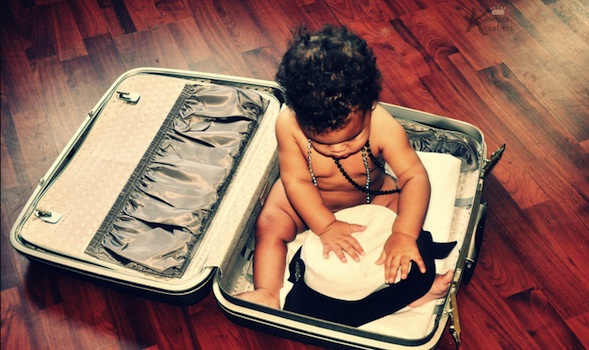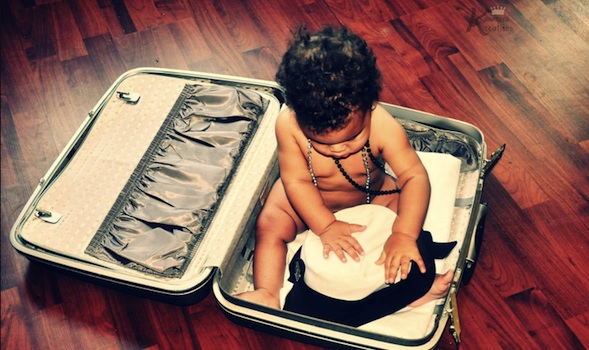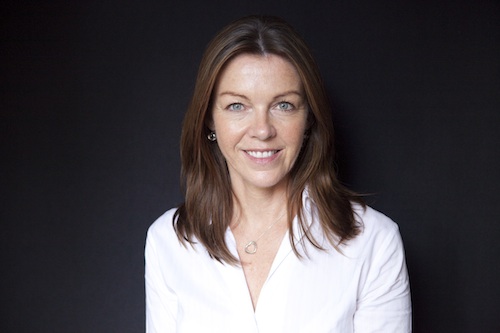
If you’re a Sassy Mama, it’s likely you’re also a bit of a jet-setter, but traveling with kids can cause even the most seasoned traveler to dread vacations! Whether short hops or long hauls, travelling always causes a bit of disruption to the daily routines of our little ones… We talk to Infant Sleep Expert, Deborah Taylor, about how you can get them back on track as soon as possible!
 Does jet lag affect babies and children more than adults?
Does jet lag affect babies and children more than adults?
Not necessarily, it’s often about the same because your baby or child has travelled through the same number of time zones as you have. However, as babies and young children don’t know what time it is and how to get themselves into the new time zone, the parents need to help them gradually adjust.
How can I prepare my baby/child for traveling in terms of adjusting schedules etc?
Some parents will start to move schedules a few days before, e.g. moving bedtime slightly later for a couple of days if they are going to Europe. In my experience of working with many parents travelling with babies, for long haul flights, it seems to work fairly well to keep your little one in the current time zone on the flight and then adjust gradually when you get to your destination.
This is especially important if you are going on an overnight flight, let your baby or child sleep as normal, the last thing you want to do is try to keep them awake to fit in the new time. They will be very overtired and miserable by the time you get to where you are going. I suggest to let them sleep and feed at their usual times during the flight.
Do you believe in medicating/sedating children for long flights?
In general no, but you can check with your paediatrician or family doctor if you feel it may be necessary for your child.
Do you have any tips for dealing with jet lag once you’ve reached the destination?
Once at your destination, start to gradually move your baby or child’s daily pattern back or forth (depending on your direction of travel), working towards the new time zone. It often takes several days.Carry out their usual bedtime routine at a time that seems right to get them to bed, start the following day at around 7 – 8am and have your baby or child out in the daylight to help reset their internal clock. Offer the same amounts of naps as at home, gradually moving them into the new time zone. Be sure the naps are not too much longer than usual or it may interfere with their night time sleeping and ability to adjust to the new time zone appropriately.
My baby thinks it’s play time in the middle of the night – should I humour them and play? Or should I try and force sleep?
Definitely do not actively play, keep the lights low, if they seem thirsty or would normally be having a milk feed at this time, offer half a feed to try to settle them and then feed again on waking in the morning. If they absolutely won’t settle, then do a quiet activity, with lights low, in the room they are sleeping in, and try to resettle again a little later.
Do you have any tips in general for traveling with babies/young children?
Take some portable familiar items, e.g. sleep toy/ special blanket/ favourite bedtime storybook etc. Don’t worry too much about jet lag, it’s usually no more than a week tops, but be sure to make sure your baby or child is not sleeping too much during the new time zone daytime or it is likely to take your little one longer to adjust to the new time. Be outside in the fresh air with your baby or child during the day, offer quiet time as well as full on activities in the first few days to help the adjustment. And enjoy your travels!
Deborah Taylor founded Infant Sleep Resources, a company specializing in Infant and Young Child sleep problems in 2010, offering a variety of services to assist parents in overcoming the sleep and settling problems experienced with their babies and children. Deborah is also an IAIM trained infant massage instructor and is available for private courses in your home. She is married, lives in Hong Kong and has two sons, one of whom was a great sleeper from the beginning, and the other an extreme sleep challenge!
You can contact Deborah by emailing [email protected].






 View All
View All




 View All
View All











 View All
View All









